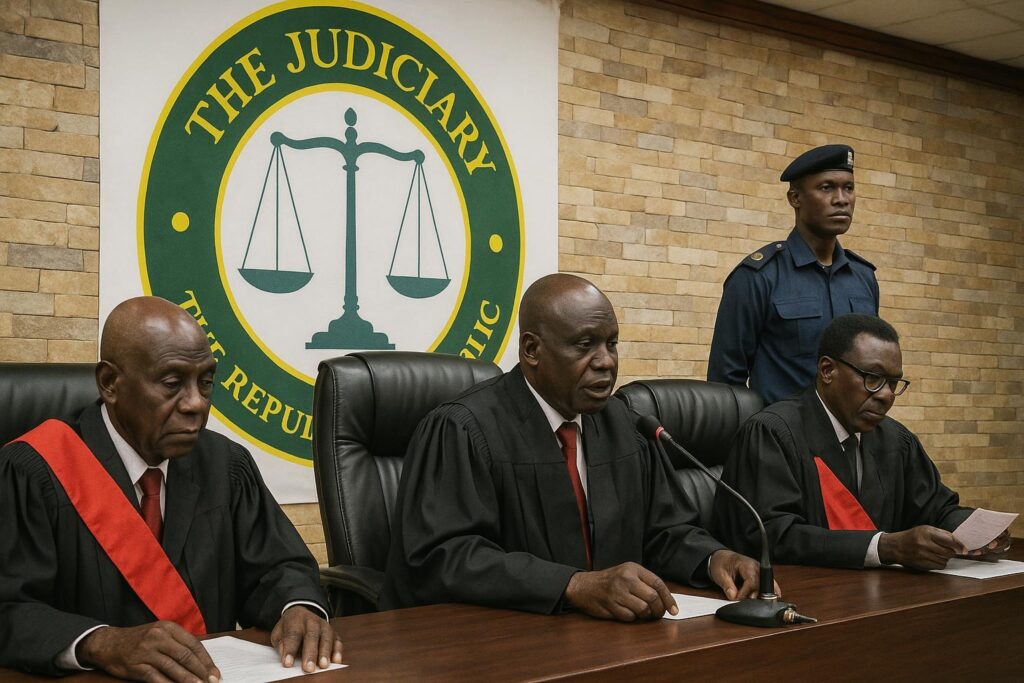Special Court Resumes 16th Session
Juba’s Special Court reconvened on Friday for its 16th hearing in the landmark trial against suspended First Vice-President Dr Riek Machar and seven co-accused, pressing ahead despite the medical absence of two defendants.
Proceedings opened with both legal benches present, the prosecution poised and the defense determined to test every claim before the panel of judges.
Investigator Faces Detailed Interrogation
Lead defense counsel Deng John Deng immediately resumed a rigorous cross-examination of Chief Investigator Maj-Gen Basilio Thomas Wani, dissecting his reconstruction of events surrounding the 2023 Nasir garrison attack.
Questions centred on a Radio Miraya interview the prosecution says inflamed hostilities. Wani admitted hearing the broadcast on social media yet could not pinpoint the date nor all on-air guests, allowing counsel to challenge the reliability of his notes.
Pressed further, the investigator conceded the recording contained no explicit orders to the White Army, an admission that appeared to temper allegations of direct command responsibility.
Chain of Evidence Under Scrutiny
Defense lawyers probed the provenance of prosecution exhibits ten and eleven, both lodged on a USB drive. They highlighted that one document was dated weeks after the case file reached court, raising procedural red flags.
Wani explained the National Communication Authority endorsed the file once the relevant official returned from abroad, but he confirmed South Sudan’s Media Authority never vetted the broadcast.
A brief outburst in the public gallery prompted the presiding judge to caution spectators, underscoring the trial’s charged atmosphere.
Arrest Procedures and Immunity Debated
Shifting focus, defense counsel challenged the legality of arrests. The investigator acknowledged that several defendants, including MP Gatwech Lam, were seized without warrants and that parliamentary immunity was lifted five months after detention.
He added that two other suspects were held under verbal orders from the Chief of Defense Forces, while cabinet approval for the detentions remained unclear.
Wani further confirmed the investigative committee began work without first taking an oath before the Justice Minister, although he insisted its mandate was formally issued and regular reports filed.
What Lies Ahead
With several prosecution witnesses yet to appear, the bench limited cross-examination to matters within Wani’s direct knowledge and adjourned until Monday, 3 November 2025.
Observers say the court’s handling of evidence and arrest procedures may shape future accountability mechanisms in South Sudan’s fragile peace architecture.
For now, the spotlight remains on Juba, where legal rigor and political stakes intersect in a trial watched closely across the region.


